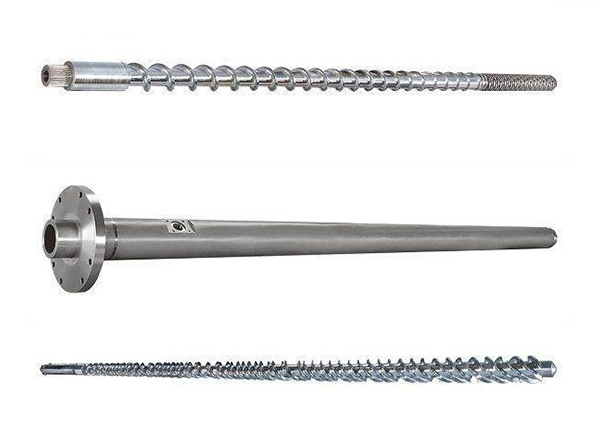+86-0580-8052088
+86-13505800981
No. 20, Liguan Road, Jintang Town, Dinghai District, Zhoushan, Zhejiang, China
Due to the small size of the center distance between th […]
Due to the small size of the center distance between the two screws, in the transmission gearbox, the space for the radial bearings and thrust bearings supporting the two output shafts and the related transmission gears is very limited. Although the designer has tried his best, it cannot be solved. The bearing capacity, the gear module, the small diameter, and the small diameter of the tails of the two screws result in poor torsion resistance. Small output torque and poor load resistance are the most significant defects of parallel twin-screw extruders. However, the plasticity of the length-to-diameter ratio is the advantage of the parallel twin-screw. It can increase and decrease the length-diameter ratio according to the difference in molding conditions to meet the requirements of plastic processing technology. It can expand the application range of the parallel twin-screw, but this is conical Twin screw extruder is difficult to achieve.

Conical twin screw extruder
The two conical screws are arranged horizontally, and the two axes are installed in the barrel at an included angle. The center distance of the two axes gradually increases from the small end to the large end, so that the two output shafts of the transmission gear box have a larger center distance. The gears and gear shafts in the transmission system, as well as the radial bearings and thrust bearings supporting these gear shafts, leave a large installation space. It can be equipped with larger specifications of radial bearings and thrust bearings, and each drive shaft has enough to transmit torsion. Because of the long shaft diameter, large working torque and large load-bearing capacity are a major feature of conical twin-screw extruders. This parallel twin screw extruder is incomparable.
The difference between parallel and conical twin screw extruder
1. Diameter: The diameter of the parallel twin screw is the same, and the diameter of the small end of the conical twin screw is different from the diameter of the large end.
2. Concentric distance: The center distance of the flat twin screw is the same, the two axes of the conical twin screw are at an angle, and the size of the center distance changes along the axis.
3. Length-to-diameter ratio: Parallel double screw (L/D) refers to the ratio of the effective part length of the screw to the outer circle of the screw, and conical twin screw (L/D) refers to the effective part length and the diameter of the large end of the screw. The ratio of the average of the end diameters.
Copyright:Zhoushan Tianxiang Screw Factory
China Conical Twin Screws ManufacturersTechnical Support: HWAQ